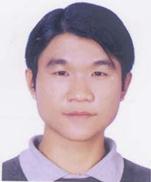Invited Speaker---Dr. Peter Chang-Yi Weng

Institute of Statistical Science, Academia Sinica, Taiwan, China
Biography: Dr. Peter Chang-Yi Weng received his B.S. degree in applied mathematics from National Chiayi, University, Chiayi, Taiwan, his M.S. degree in applied mathematics from National Cheng Kung University, Tainan, Taiwan and his Ph.D. degree in applied mathematics from Monash University, Melbourne, Australia, in 2004, 2006 and 2013, respectively. He is a postdoctoral researcher since March, 2014. Dr. Weng has published more than 10 papers in the area of computational mathematics and statistics. Some of his papers are published in the top journals, such as Numerical Algorithms, Linear Algebra and its application, BIT, JCAM and AMC. His research interest include large-scale problems in control system design, uncertainty quantification on linear dynamical system, model order reduction for bilinear system and social network including diffusion mechanism and exchange theory.
Speech Title: Uncertainty Quantification on Linear Dynamical System
Abstract: Uncertainty quantification (UQ) is a new and hot branch of computer experiment
that provides a calibration on parameter estimates in a computer model when small
perturbations exist. In this paper, we first study the continuous-time linear system
described by discretizing the partial differential equations. This type of system has
many important applications such as circuits, signal processing, spectroscopy, con-
trol theory and many others. In order to understand the random errors, we add
some perturbations to the parameters in the system that involves some uncertain-
ties. When we choose the optimal control to minimize a cost function, one way is to
solve the continuous-time Riccati differential equation and the solutions represent
the approximations of the corresponding random process. Moreover, we also discuss
the continuous-time algebraic Riccati equation when we consider the infinite time.
We should provide the sufficient conditions for the existences of the stabilized solu-
tions of the stochastic continuous-time linear system. Then the study is extended
to the discrete-time linear system. Some numerical simulations of the stochastic
linear-time systems are presented.